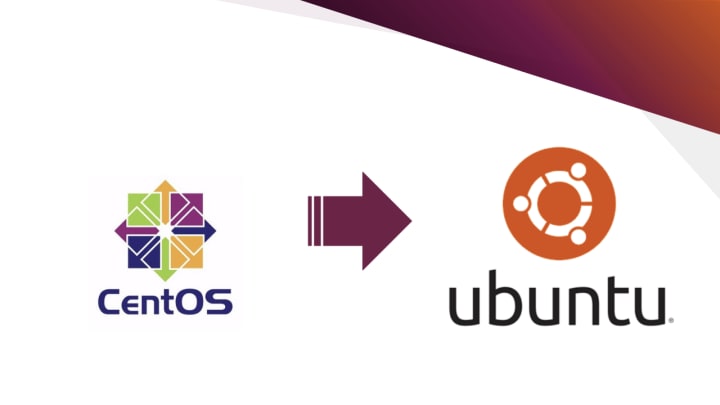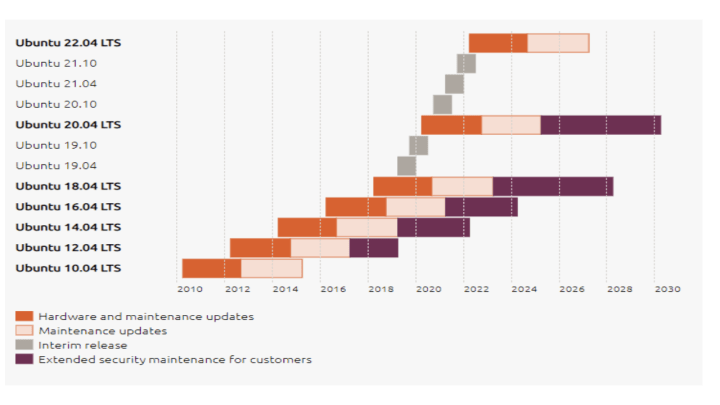
Operating systems are the foundation blocks of technology stacks in organisations. When considering an open source operating system for Finserv infrastructure, there are four factors that are key to any enterprise using it – maintainability, continuity, stability and security. The Financial Services industry have started exploring options for a stable and supported open source Linux OS following IBM Red Hat announcement to accelerate the end-of-life for CentOS 8 with no further operating system updates after December 31, 2021.
Finservs that have been using CentOS as a stable point distribution for their servers, virtual machines, and appliances had migrated to CentOS 8 expecting support until 2029—only to find out that their “until-2029” distro became “until-2021” distro just a few months after upgrading.
Finservs need a secure, open source Linux distro that can provide long term continuity and maintainability. This blog provides an overview of why Ubuntu is the leading choice for a secure, stable platform for finserv infrastructure and cloud native banking.
Reliable release schedule
Canonical publishes new releases of Ubuntu on a regular cadence, enabling the community, businesses and developers to plan their roadmaps with the certainty of access to newer open source upstream capabilities. LTS or ‘Long Term Support’ releases are published every two years in April. LTS releases are the ‘enterprise grade’ releases of Ubuntu and are utilised the most. An estimated 95% of all Ubuntu installations are LTS releases.
LTS releases of Ubuntu Server receive security updates by Canonical for five years by default. Every six months, interim releases bring new features, while hardware enablement updates add support for the latest machines to all supported LTS releases.
All Ubuntu Advantage for Infrastructure subscriptions include Extended Security Maintenance (ESM) increasing the support life-cycle to up to 10 years.

Stable and supported Linux OS
Ubuntu LTS is a predictable, stable and secure platform with commercial services and solutions provided by Canonical. Ubuntu LTS offers enterprise-grade support backed by a team of experts who can also offer assistance with migration of finserv infra to the Ubuntu platform. Ubuntu LTS provides access to compliance-specific modules, including FIPS 140-2 certified cryptography, DISA/STIG and CIS hardening, Kernel Livepatch for improved uptime and security.
Performance and versatility
Ubuntu is certified by leading hardware OEMs and with comprehensive deployment tools finservs can get the most from their infrastructure deployments. Ubuntu’s regular release cycle means access to the latest and most performant open source for Finservs. A lean initial installation and integrated deployment and application modelling technologies make Ubuntu Server a great solution for simple deployment and management at scale.
Security and compliance for the full stack
Canonical has received FIPS 140-2, Level 1 certification for cryptographic modules in Ubuntu 18.04 LTS, with FIPS-validated OpenSSL-1.1.1. modules included. This certification enables organisations to meet compliance requirements within the public sector, healthcare and finance industries when utilising Ubuntu 18.04 LTS within public and private cloud environments.
Canonical worked with U.S. Government and BSI accredited laboratory, atsec information security, for the 18.04 LTS FIPS certification. The publications related to FIPS standards are issued by the National Institute of Standards and Technology (NIST).
FIPS-certified and FIPS-compliant modules for Ubuntu 18.04 LTS and 16.04 LTS are available through an Ubuntu Advantage for Infrastructure subscription, alongside additional open source security and support services. To get started with an Ubuntu Advantage subscription, contact our team.
On public clouds, Ubuntu Pro for AWS? and ?Ubuntu Pro for Azure? include subscriptions to Canonical’s FIPS 140-2 repositories, alongside expanded security and hardening.
Ubuntu – a perfect platform for multi-cloud operations
Finservs’ multi-cloud strategy depends on having competing public clouds and a cost-effective private cloud. Ubuntu is an essential ingredient of any successful multi-cloud strategy.
Canonical’s strong relationships with all major public clouds ensure that Ubuntu is the most optimised OS on all public clouds. Ubuntu is also the number one operating system used for OpenStack deployments. Canonical also leads multi-cloud application management with the universal operator pattern to speed up operations and drive down the cost of integration for cloud-native applications.
Multi-cloud Kubernetes on Ubuntu
Ubuntu is the reference platform for Kubernetes on all major public clouds, including official support in Google’s GKE, Microsoft’s AKS and Amazon’s EKS CAAS offerings. Canonical delivers pure upstream Kubernetes tested across the widest range of clouds — from public clouds to private data centres, from bare metal to virtualised infrastructure. Ubuntu provides the latest container capabilities in modern kernels which makes Ubuntu as the top choice for on-premise enterprise Kubernetes too, with MicroK8s, kubeadm and Charmed Kubernetes all supported by Canonical.
Enterprise support for Kubernetes on Ubuntu is provided by Canonical as part of an Ubuntu Advantage for Infrastructure (UA-I) support subscription on a large range of substrates. UA-I also includes long-term security maintenance, kernel Live patching and mission-critical infrastructure support for the full stack, from kernel to container. Canonical supports K8s on Ubuntu on public clouds, VMware, OpenStack and bare metal.
Ubuntu – The Enterprise grade Linux for Finservs
Apart from publishing and maintaining Ubuntu, providing engineering resources and driving the roadmaps, Canonical has a rich portfolio of services to manage and operate Ubuntu-based infrastructure at scale. Canonical provides full commercial support for Ubuntu under the Ubuntu Advantage for Infrastructure (UA-I) subscription. This includes software updates, up to ten years of security patches, phone, ticket support, and production-grade SLAs.
Furthermore, UA-I customers are eligible to use extra features, such as Landscape management and monitoring platform or Kernel Livepatch Service for kernel updates. And finally, for the public clouds, Canonical provides Ubuntu Pro. Images that not only contain all the goodness above but also extend it with features like hardening for security and compliance. All of that at a competitive price compared to any other alternatives.
Now is the time to act
If you are a finserv organisation evaluating the move from CentOS to an open source enterprise grade Linux platform, you can join your peers that are actively considering a move to Ubuntu and have the assurance of a reliable, secure and supported Linux platform with long term support from Canonical.
Are you evaluating CentOS alternatives?
Get in touch